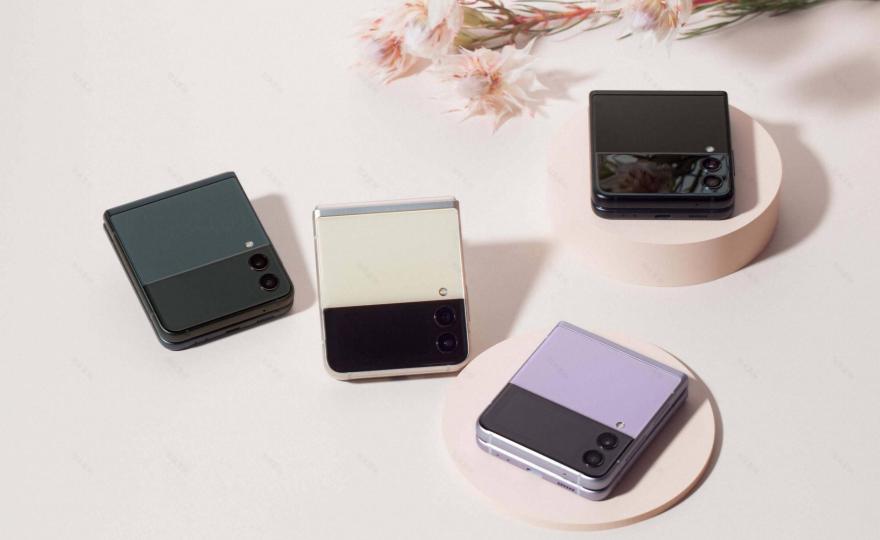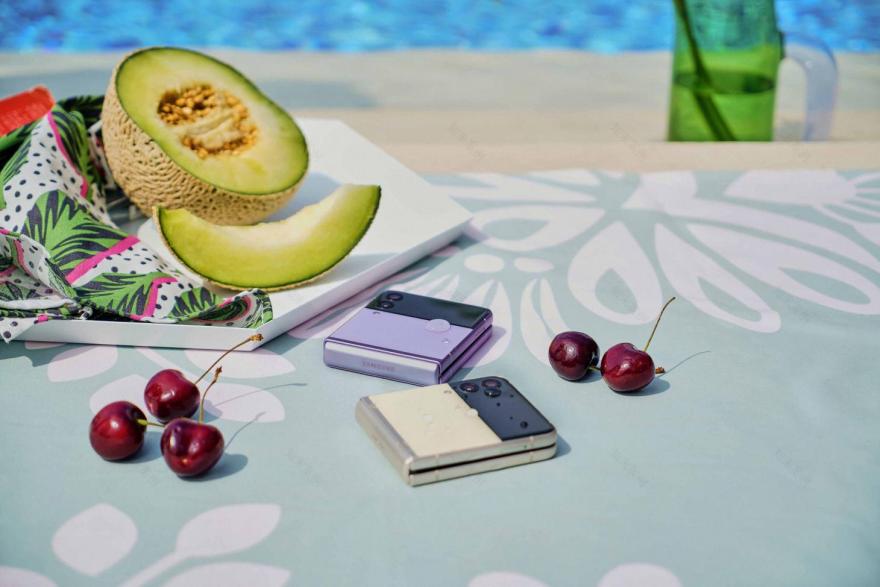查看完整案例


收藏

下载

翻译
Samsung’s new flip phones – the Galaxy Z Fold3 and Galaxy Z Flip3 – are pocketable mobiles with folding touchscreens, and might just change your phone habits
The new Samsung Galaxy Flip3 phone
Remember when having a flip phone was a sign of social cachet? Samsung is hoping to restore that status with its new Z Series foldable phones, the Galaxy Z Fold3 and Galaxy Z Flip3. The latter is also available in a new Bespoke Edition, which can be configured online to create up to 49 different combinations.
The Galaxy Z Flip3 Bespoke Edition
Original flip phones fell out of use after the arrival of the smartphone shook up phone design and set in train nearly 15 years of increasingly large black tablets that were distinguished only by highly finessed detailing, use of materials and the all-important logo. The search for a touchscreen that folds has occupied the innovation labs of the major manufacturers for years. There were concepts and proposals, but it was an obscure Chinese brand, Royole, that was first to market, with the FlexPai in 2018.
The new Samsung Galaxy Z Flip3 phone opens up to a full-size screen
The first Samsung Galaxy Fold arrived in early 2019, hotly followed by Huawei’s Mate X. It was a case of too much, too soon, because the first devices had only just broken cover when they literally broke apart in the hands of over-enthusiastic reviewers, highlighting the complexity of building a mechanism that’s robust enough for our incessant phone use.
New Galaxy Z Fold3 and Galaxy Z Flip3
The Samsung Galaxy Z Fold3 promises to have cracked the issues (hopefully not literally this time). It’s joined by the Galaxy Z Flip3, the latest iteration of the company’s more compact, pocket-friendly mobile (and the one that bears the strongest resemblance to the flip phones of old).
While some rivals wrap the screen around the outside of the phone, Samsung keeps its flagship device conventionally book-like, opening up to reveal the most impressive pocketable display. Unsurprisingly, it’s not the lightest phone, and that big screen has big demands on battery, but the way you use the phone might change substantially if there’s a choice between a taking quick check or making a deep dive into every app.
The Samsung Galaxy Z Flip3 phone is – at last – a tilt towards smaller devices
Both devices have screens fashioned from the latest version of Corning’s Gorilla Glass, the near-miraculous material that swathes countless billions of smart devices around the world. The new hinge mechanisms have been tested to be good for 200,000 folds (take a peek at your screen every five minutes for 18 solid hours a day, and it should last for over two and a half years).
However, both Z Series phones have an exterior screen for showing notifications, time and other info, so there’s a slim chance you might use your phone less.
The new Samsung Galaxy Z Flip3 phone is available in a variety of colours
The Flip3 is pitched more at the casual user, opening clam-like into a rough approximation of the largest conventional phone. On both devices you can split up the screen in more innovative ways, although not all apps will make best use of the added display area. You can even use Samsung’s smooth S Pen technology on each device, and there’s up to 512GB of internal storage, as well as the company’s excellent cameras.
Samsung has also included its Wireless PowerShare technology, a way of spreading excess charge to your other Samsung devices – particularly useful with a Galaxy Watch or earbuds.
In the US market, the Galaxy Z Fold3 is available in a launch-only Thom Browne Edition, with white leather accessories and a white matte finish
Is the era of the supersized phone finally coming to an end? Paradoxically, these latest Samsung Z Series phones might be the first step towards the downsizing of mobile devices. If you can have all the screen real estate you desire in a much more compact package, then folding screens are a natural next step – we’re especially taken by the Flip3’s mix of miniaturisation and innovation.
Whether the biggest, fruitiest player in the mobile market decides to follow suit will determine whether flexible screens are here to stay. §
客服
消息
收藏
下载
最近










